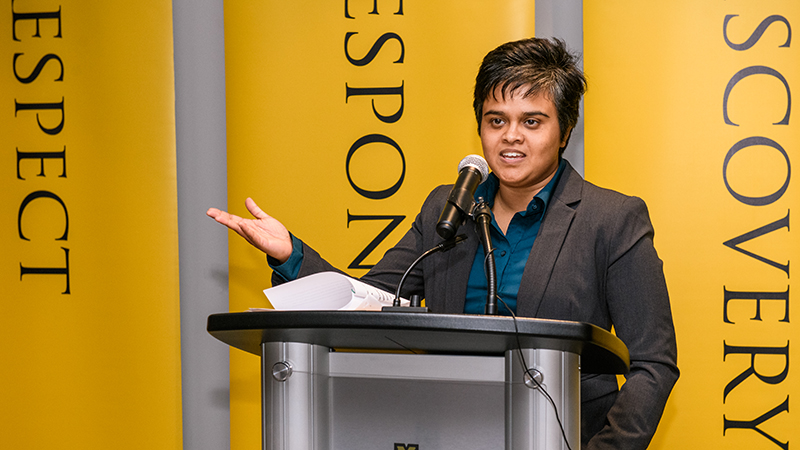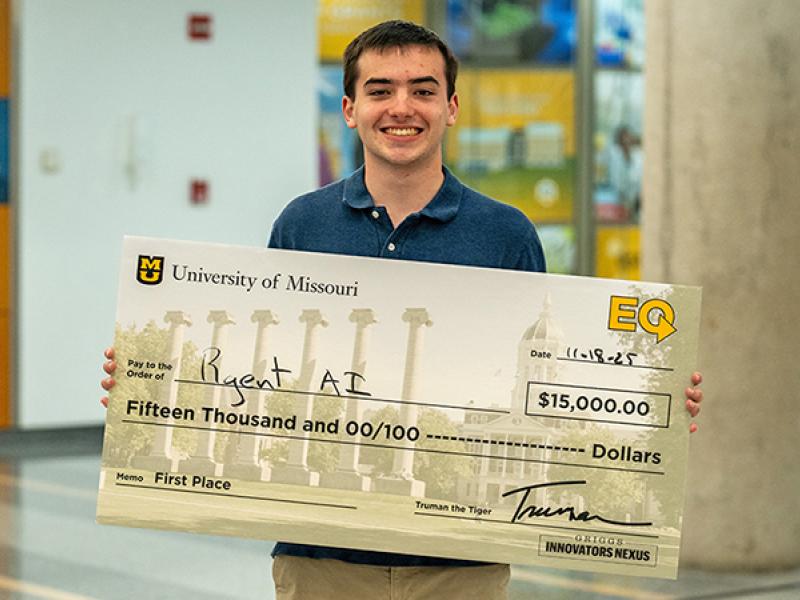
The University of Missouri’s Coulter Biomedical Accelerator Program awarded three grants totaling $215,246 to help promising medical discoveries make the transition from laboratory research to commercial investment and use in direct patient care. The program’s ninth annual awards ceremony took place virtually this year because of COVID-19.
“The University of Missouri is home to leading experts in all fields of engineering, medicine and business,” said Mark McIntosh, PhD, MU vice chancellor for research and economic development. “The Coulter Biomedical Accelerator Program brings this expertise together with the goal of delivering practical solutions to pressing medical problems affecting our state, nation and the world. The Coulter Program is an excellent example of the power of interdisciplinary collaborations at MU.”
MU is one of only 15 academic institutions in the country and the only university in Missouri offering a Coulter Program. Bringing engineers and clinicians together to develop solutions to unmet medical needs is a key premise of the Program.
MU’s Coulter Program provides annual awards to researchers whose projects meet a well-defined health care need and demonstrate business potential. The projects are reviewed by a committee that includes entrepreneurs, industry experts, accomplished researchers and investors.
“It is an honor to be a part of a program built on interdisciplinary partnership that is making a significant impact on health care and entrepreneurship in mid-Missouri,” said Sheila Grant, PhD, principal investigator for the Coulter Program.
The 2020 Coulter Program awards were given to three teams with a total of six researchers to fund the following projects:
Smart Surveillance System (S3) for Monitoring Vascular Bypasses/Stents at Home: The Smart Surveillance System (S3) is designed to fill the unmet need for more frequent and convenient surveillance in the home of patients with vascular conditions. It is a noninvasive, easy-to-use application that uses infrared technology and smart algorithms to provide in-home tracking of blood flow in the lower extremities of patients who have had an endovascular or surgical procedure to treat their condition. The final envisioned product will also provide accurate real-time alerts about patient status sent directly to the physician through the electronic medical record.
- Jonathan Bath, MD, Department of Surgery, MU School of Medicine
- Mihail Popescu, PhD, Department of Health Management and Informatics, MU School of Medicine
Mizzou Point-of-care Assessment System (Mizzou PASS): Portable Multi-dimensional Assessment Tool for Management of Concussive Injuries: The Mizzou Point-of-care Assessment System (Mizzou PASS) is a comprehensive clinical testing platform that has the potential to address the critical need for an affordable diagnostic tool that can improve concussion management at the point of care. The Mizzou PASS will provide quick, accurate and user-friendly data for medical personnel and patients, improving diagnosis as well as clinical decision-making for safe return to activity.
- Rebecca Bliss, DHSc, PT, DPT, Department of Physical Therapy, MU School of Health Professions
- Trent Guess, PhD, Department of Physical Therapy, MU School of Health Professions; and Department of Orthopaedic Surgery, MU School of Medicine
TumorTrap: Efficient, Low-cost and Rapid Microfluidic Circulating Tumor Cell Detection Chip: While advanced imaging provides important information about a patient’s cancer disease, efficient characterization of radiographically undetectable disease is lacking. Circulating tumor cells (CTCs) collected by noninvasive blood draws allow repeated measurements, thereby enabling accurate guidance for disease monitoring and therapeutic planning. However, the current standard of care for CTC detection is expensive, and with limited sensitivity, has inadequate impact on therapy. To address this unmet clinical need, the team is developing an inexpensive, easy-to-use, point-of-care CTC detection platform that will enable quick processing and even retrieval of viable circulating tumor cells for further analysis. Such a reliable, user-friendly method to assist with monitoring disease progression and better tailoring of drugs to patients will have the potential to improve outcomes while reducing costs of care.
- Jussuf Kaifi, MD, PhD, Department of Surgery, MU School of Medicine
- Jae Kwon, PhD, Department of Electrical Engineering and Computer Science, MU College of Engineering
Included in this year’s overall funding were two other previously funded projects that received additional ongoing support. These projects were the Mizzou Knee Arthrometer Testing System (MKATS): An Easy-To-Use Tool for Accurate Screening, Diagnosis and Treatment Monitoring for Knee Ligament Injuries) and the Tiger Patch for Comfortable, Adhesive-Free, Long-Lasting and Accurate Cardiac Monitoring. These two teams receiving additional funding are developing a portable diagnostic tool for quality assessment of clinical movement and a comfortable, adhesive-free, long-lasting and accurate cardiac monitoring device, respectively.
“By funding, training and mentoring proof-of-concept work at MU, Coulter adds tremendous value to the local biomedical innovation and entrepreneurial ecosystem,” said Jaya Ghosh, PhD, program director of the Coulter Biomedical Accelerator.
The MU Coulter Program began in 2012 as a five-year partnership with the Wallace H. Coulter Foundation. Although the partnership with the Coulter Foundation ended in 2017, leaders at MU decided to extend the program for five more years with university funding.
Since its inception, the Coulter program has helped MU research projects generate more than $19.1 million in new government grants and has led to the creation of multiple start-up companies. To date, these start-up companies have raised $7.3 million from early-stage investors. Two Coulter technologies have also been successfully licensed to established companies.





